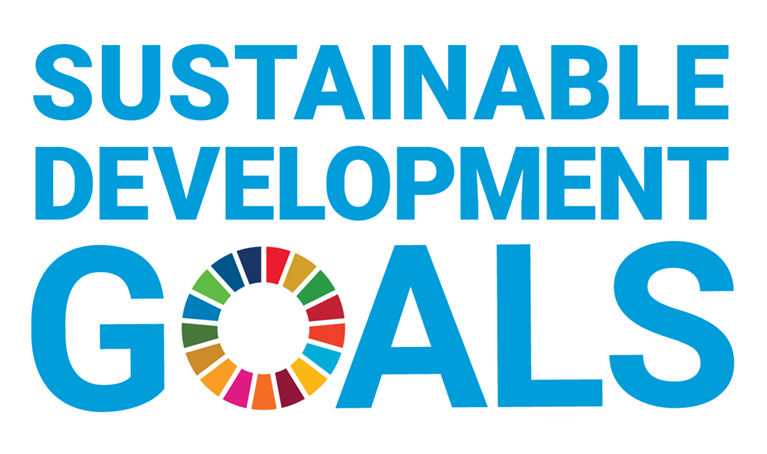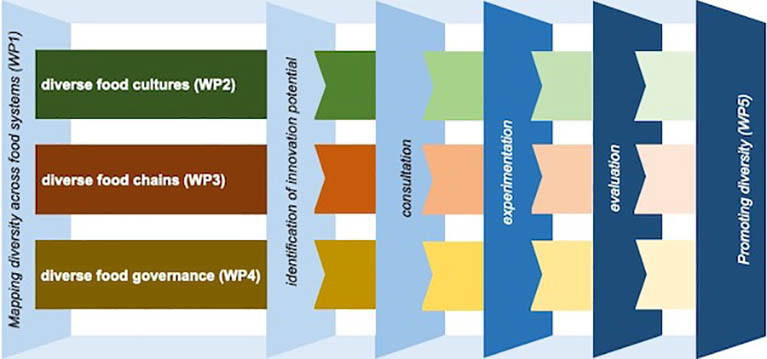
FOOdIVERSE - Diversifying sustainable and organic food systems
Funder
The project is funded under the ERA-NETs SUSFOOD2 and CORE Organic Cofund, with the UK contribution from Defra
Value
€1 million Euro total project
£100,000 for United Kingdom
Collaborators
University of Giessen (Germany), lead, Oslo Metropolitan University (Norway), University of Trento (Italy) and Jagiellonian University of Krakow (Poland)
External website
https://www.uni-giessen.de/faculties/f09/institutes/CRCFS/food-sociology/foodiverse
Team
Ulrich Schmutz, Adrian Evans and Moya Kneafsey
Duration
January 2021 - December 2023
CAWR Themes
Community Self-Organisation for Resilience
Resilient Food and Water Systems in Practice
Sustainable Development Goals
2 - Zero hunger
3 - Good health and well-being
6 - Clean water
12 - Responsible consumption and production
13 - Climate action
14 - Life below water
15 - Life on land
16 - Peace justice and strong institutions

Overview
Food consumption significantly influences resource use and the environmental effects of food production and distribution. Currently a rather homogenous group of well-educated and affluent consumers is strongly interested in organic food. The mainstream food supply chains and their governance are characterised by a food regime that creates large quantities of standardised food. A more diverse food system could deliver more choices and could be more sustainable. What is lacking is a systematic and practice-oriented characterisation of diversity in the food system and its impact on resilience, enhancing socio-economic and environmental pillars of sustainability.
Project objectives
The FOOdIVERSE project aims to produce practice-oriented knowledge on how diversity in diets, novel food supply chains and food governance contributes to more organic and sustainable food systems. The project provides multi-level perspectives on transforming local food systems across Europe by promoting diversity of consumers, producers and key stakeholders.
Methodologically and theoretically this project takes a relational approach on diversity, emphasising different characteristics in various contexts and across different scales. Diversity has diverse meanings, for example in urban Norway or in rural United Kingdom, but also to German consumers, Italian government officials or Polish food producers. We seek to identify the relations in characteristics of diversity that accelerate a transformation toward more sustainable food systems.
Impact statement
The project directly promotes more sustainable and organic food systems through involving consumers, producers, food-processors and those governing food systems with a living lab methodology. A user-centred and innovation approach in local contexts of Italy, Germany, Norway, Poland and the United Kingdom assists in comparing whilst instantaneously implementing the results in real-life scenarios. We engage different actors and include a diverse critical range of viewpoints on organic food systems.





